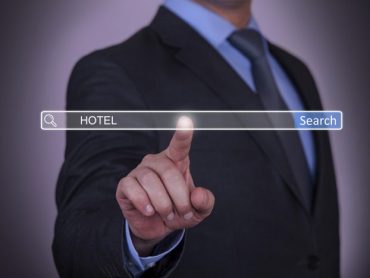What’s Important to Today’s C-Suite Traveller
Beyond a quiet, comfortable night’s sleep, what does the senior business executive traveler need? We asked this question to hundreds of CEOs, COOs, CFOs, CMOs and CIOs in a recent survey. The results are straightforward, and provide a heads up for any hotelier wishing to adequately cater to this demographic.
The Methodology
We used a mailed survey with the selection of candidates chosen from directories of corporations with sales in excess of $100 million. The survey was conducted in the first quarter of 2011 and was distributed amongst C-suite holders in North America (78% of those polled resided in the USA; 22% were Canadian), asking only of their requirements for domestic travel only. Inferences about overseas travel or European/Asian travel habits should not be implied. Respondents who completed the survey received a financial donation to their specified charity with no additional compensation.
A 30% response rate was received equating to 59 useable surveys, 53 of which were male. Given the limited female sample size, they were not deemed statistically significant to be included in the final analysis. The average age of the respondents was reported as 47. Income level was not asked, nor was marital status.
The average executive canvassed spent 26 nights in hotels for business purposes through 2010. Over half of those polled worked for companies that had corporate rate programs with major hotel chains. While half of the respondents had a member of their staff arrange the hotel booking for them, interestingly, over 90% either specified, or provided input on the hotel selection for their stay.
First Question
“In addition to getting a good night’s sleep (comfortable bed, quiet room, excellent HVAC) and the hotel’s location relative to your needs, what other factors are important in your selection of a hotel room for a business stay?”
There were 30 different items listed. For each one, the respondent rated them from 0 (not at all important) to 5 (critical). The individual scores were then summed for each item and averaged to provide an overall score out of five, adjusted for no response. The results clustered into three distinct groups: Top (4.1 – 4.8), Middle (1.7 – 3.7), and Bottom (0.4 – 1.3), with no statistical significance within each group. Here are the results:
Items with a total average score of 4.1 to 4.8, ranked in descending order:
- High speed Internet access
- Friendly, courteous service at check-in
- Bottled water available
- Being recognized at check-in
- Express check-out
- National newspaper delivered in the morning
- High quality towels
- Check-in early and check-out late capabilities
- Prompt room service breakfast available
- Coffee and coffee maker available in room
- Welcome amenity
- Easily accessible power outlet to recharge cell phone or mobile device
- Accurate, timely wakeup call
Items that scored an average of 1.7 to 3.7, ranked in descending order:
- News channels available on television
- Working desk with ergonomic chair and good lighting
- Bathrobe
- Iron and ironing board
- All day room service menu
- Voice mail
- Room security
- Top quality toiletries
- Map of jogging trails available
Items that scored an average of 0.4 to 1.3, ranked in descending order:
- Turn down amenity
- Promotions or events/activities displayed in room
- Pay movies
- CD, radio or iPhone player
- Mini-bar
- Hotel store catalog and/or order form
- In-room magazines (Note: ranked the lowest with a 0.4 score!)
Second Question
“What is the average tip that you leave, per night, for the housekeeping staff?”
Interestingly, 19% of those polled reported zero, with the average of all 53 respondents being $5.74.
Third Question
“What single charge added to your folio on check-out is the most frustrating?” (This was an open-ended question without any prompting.)
Over half of the answers had to do with paying for Internet services. A close second was paying for bottled water.
Fourth Question
“What could hotels do better?” (Again, this was an open-ended question without any prompting.)
The answers were broad ranging, with many of the surveys giving multiple responses. Here are the ones that were mentioned by at least four respondents:
- Stop charging for extras
- Free Internet and/or higher speed Internet services
- Free bottled water by the bed or for the road
- Faster car valet service
- Check-in and check-out via mobile devices
- Larger television
Conclusions
Senior executives, when on business, are no-nonsense travelers. Their requirements should be easily manageable by all properties. It also appears that Internet connectivity, both price as well as service speed, continues to be the premier pet peeve.
Of note, the primary question stated ‘in addition to a good night’s sleep.’ Hence, this survey makes the somewhat naïve assumption that this can (and should) be accomplished.
So, if all senior executives need is a good night’s sleep, fast Internet connectivity and free bottled water, what differentiates your property from the others? Is it how your property is found through advertising or Internet searches? Is it your brand reputation? Is it your frequent flyer programs, or loyalty cards?
This short survey indeed raises a host of further questions. However, the takeaway message is simple. If these basic, high-priority service needs are consistently met, then it will help with customer retention and free up resources to better plan the next steps.
(Article by Larry Mogelonsky, published in eHotelier on October 24, 2011)




